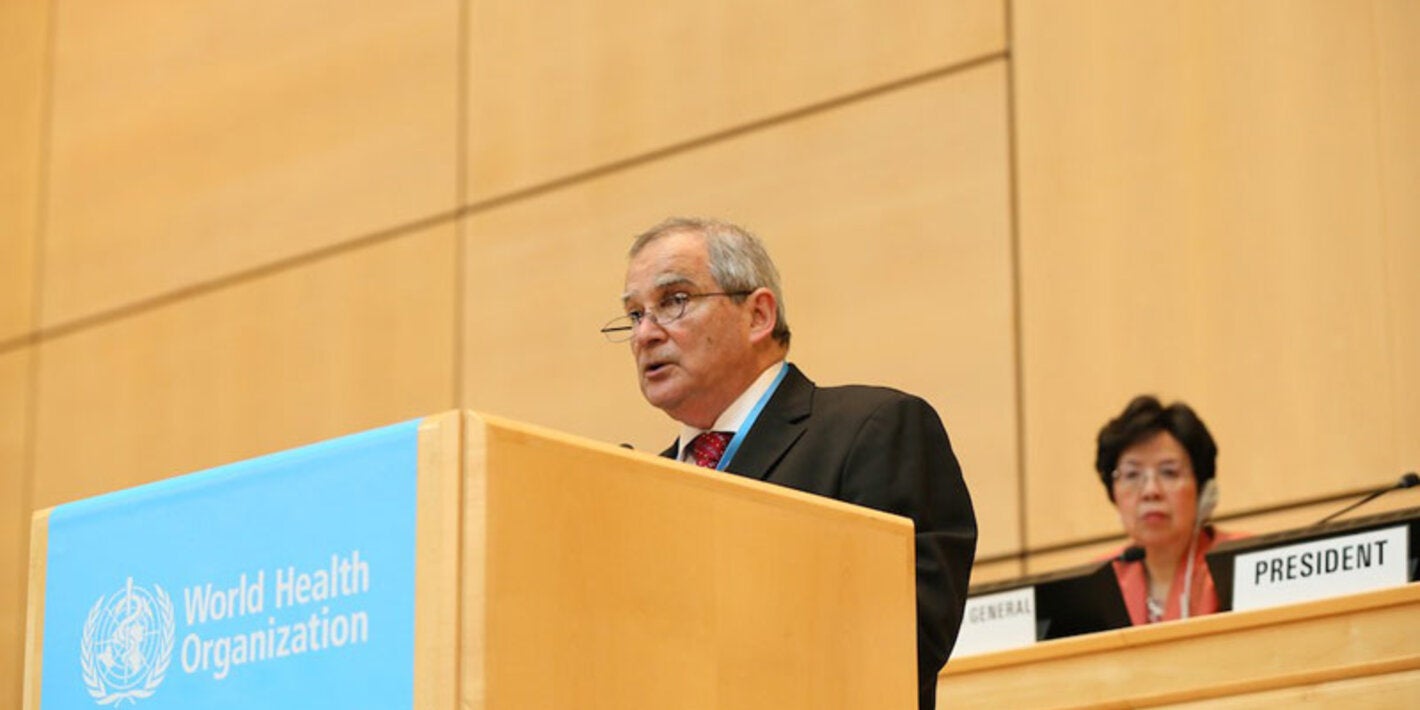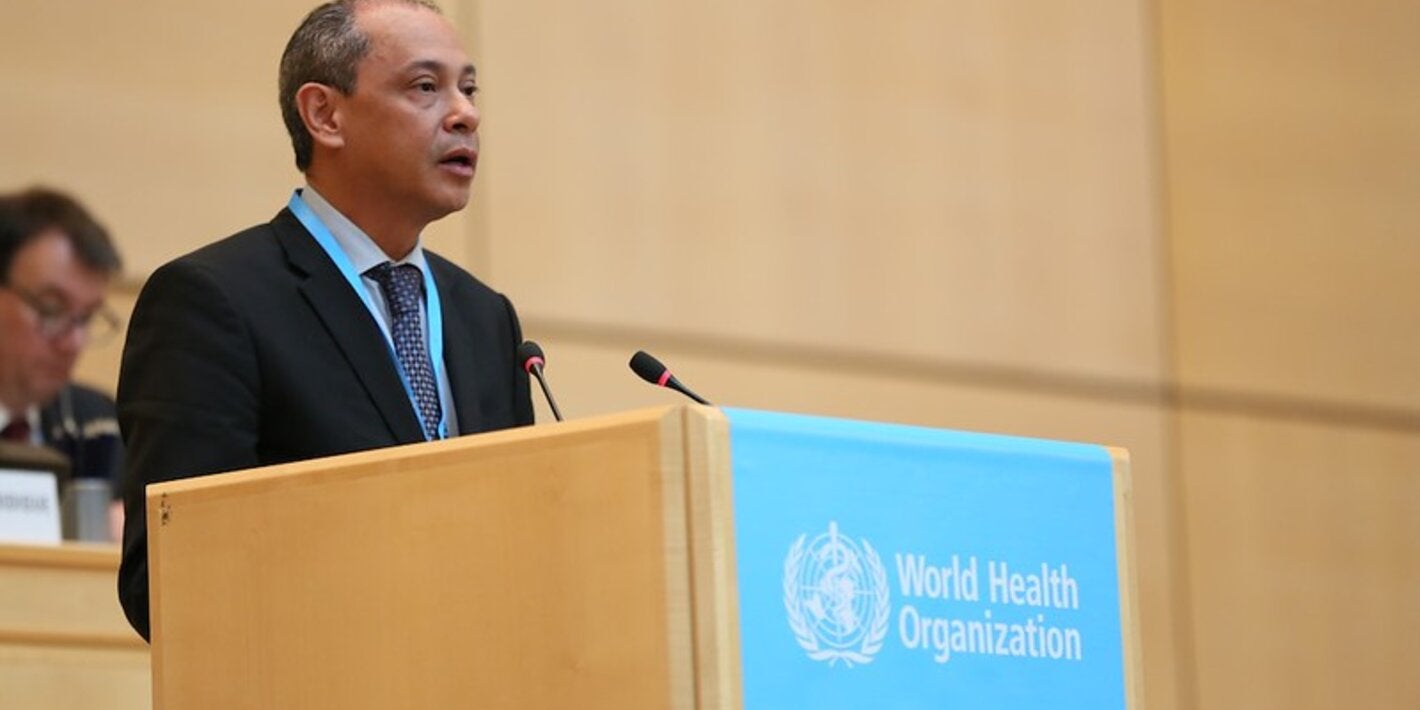Geneva, 24 May 2016 (PAHO/WHO).- Brazil, Canada, Chile, Mexico, the United States, and countries of other world regions, together with the British chef Jamie Oliver, shared their successful experiences in combating childhood obesity and malnutrition.
Nearly 800 million people worldwide are chronically undernourished and more than two billion have…
Geneva, 23 May 2016 (PAHO/WHO) - With words of celebration, warning and hope, the Director-General of the World Health Organization (WHO), Dr. Margaret Chan, opened the 69th World Health Assembly yesterday.Dr. Chan celebrated recent progress in global public health, particularly in the fight against HIV/AIDS, tuberculosis, malaria, and polio, as…
Geneva, 23 May 2016 (PAHO/WHO)— In his address to the 69th World Health Assembly, the Minister of Health of Brazil, Ricardo Barros, announced that potential developmental consequences in children whose mothers have been infected by the Zika virus will be investigated.
"We offer comprehensive care to children born with microcephaly and will follow…
Geneva, 23 May 2016 (PAHO/WHO) — "The 2030 Agenda for Sustainable Development provides an opportunity to speed progress made in the fight against epidemics, as well as in tackling neglected and tropical diseases, and provides a framework for responding to new threats such as Zika", noted the Minister of Health of Argentina, Jorge Lemus, in his…
Geneva, 23 May 2016 (PAHO/WHO) - The Director of the Pan American Health Organization/World Health Organization (PAHO/WHO), Dr. Carissa F. Etienne, met today with the delegations of the countries of the Americas, focusing on issues of key interest for the Region to be addressed in the plenary session of the 69th World Health Assembly this week.…
Geneva, 23 May 2016 (PAHO/WHO) - Panama has been designated as Vice-President of the 69th World Health Assembly, representing the Region of the Americas at the Assembly, which is taking place from 23 to 28 May in Geneva, Switzerland.
The Minister of Health of Panama, Francisco Javier Terrientes, will be one of the five vice-presidents appointed…
Cover photo: PAHO Director Carissa F.. Etienne provides UNASUR Health Ministers with an analysis of emergency response in the Americas.
Geneva, 22 May 2016 (PAHO/WHO) - The countries of the Americas and the Pan American Health Organization (PAHO) have broad experience in responding to emergencies and emerging outbreaks, and have used the…
Washington, DC / Geneva, Switzerland, May 20, 2016 (PAHO / WHO) - Ministers and health officials from 194 countries will participate in the 69th World Health Assembly next week to discuss actions on issues such as emergency response of the World health Organization (WHO), promoting health through the life course, strategies to deal with…









 …
…